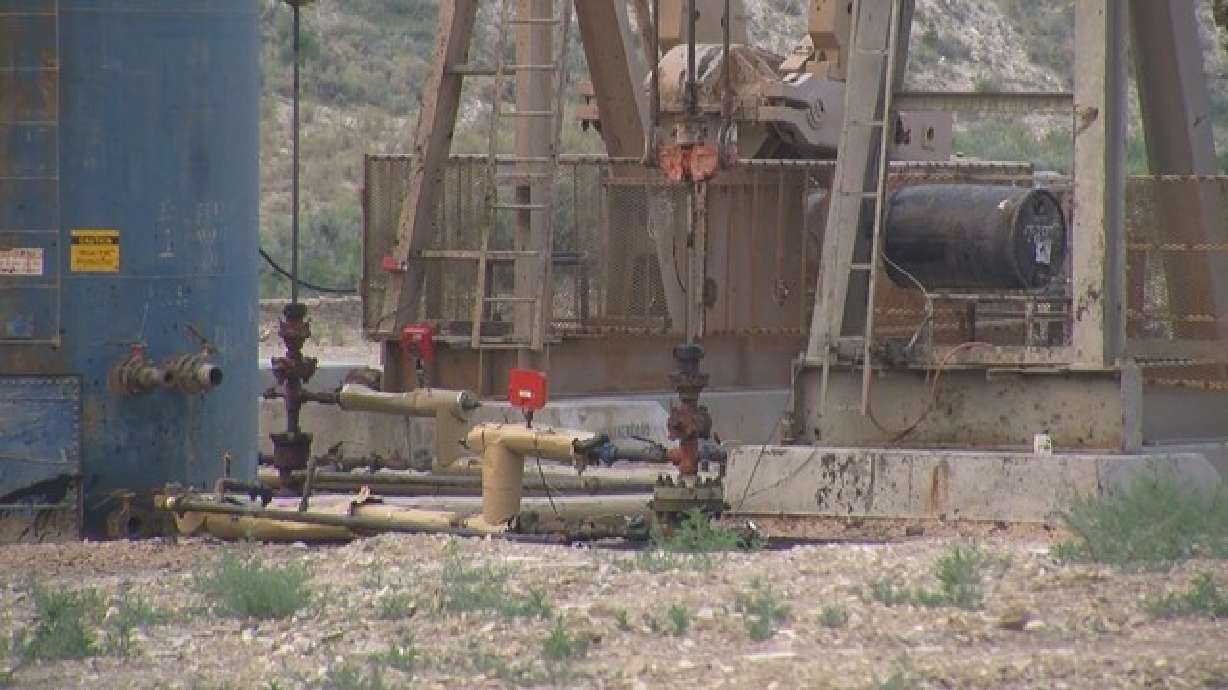Estimated read time: 4-5 minutes
This archived news story is available only for your personal, non-commercial use. Information in the story may be outdated or superseded by additional information. Reading or replaying the story in its archived form does not constitute a republication of the story.
SALT LAKE CITY — Both friends and foes of hydraulic fracturing are praising a new study by the U.S. Environmental Protection Agency that warns of potential contamination to drinking water supplies but concedes no big problems have happened to date.
That preliminary conclusion in the draft assessment published Friday by the EPA comes after the agency reviewed data from nearly 25,000 oil and gas wells, including hundreds in the Uinta Basin, culled additional records from 333 wells across the United States, and examined 12,000 records.
The agency also released nine peer-reviewed scientific reports that are part of the overall analysis, initiated in 2009 at the request of Congress.
While the EPA did find incidences of contaminated drinking water wells, it said the number of identified cases was small in comparison to the number of hydraulically fractured wells. The EPA did admit that the margin may be small because of insufficient information or other "limiting" factors.
Some say the findings back assertions by Utah and three other states that a new federal rule on "fracking" is unnecessary because local regulatory oversight is sufficiently protective of public and environmental health.
"This report is damaging for the (Obama) administration and contradicts a predominant claim the White House has used to justify a federal fracturing rule," said Rep. Rob Bishop, R-Utah.
In May, Gov. Gary Herbert announced that Utah would join North Dakota, Wyoming and Colorado in a lawsuit against the Bureau of Land Management that asserts the rule is unnecessary, duplicative of states' efforts and a burdensome cost to industry — as much as $250,000 per well.
"I think what is safe to say from this report is that fracking is really not a water concern. It is not an issue that has had a widespread impact on the nation's water supply, and it is not going to," said Cody Stewart, Herbert's policy adviser. "This supports our position that the federal fracking rule is unwarranted and it is addressing an issue that is really not a problem."
I think what is safe to say from this report is that fracking is really not a water concern. It is not an issue that has had a widespread impact on the nation's water supply, and it is not going to.
–Cody Stewart, Herbert's policy adviser
But the EPA's assessment did warn there is ample reason for caution when it comes to fracking and safeguarding drinking water in oil and gas-producing regions.
The agency, relying on 950 sources of information, framed its research around five stages of the hydraulic fracturing water cycle:
• Water acquisition — the withdrawal of ground or surface water to use in hydraulic fracturing fluids.
• Chemical mixing to blend water, chemicals and other substances for the fluid.
• Well injection itself to fracture the geologic formations.
• The return of the injected fluid and water produced from the process and its transport.
• Wastewater treatment and waste.
The EPA picked five case study locations in Colorado, North Dakota, Texas and Pennsylvania, conducting two rounds of sampling at 70 domestic water wells, 15 monitoring wells, and 13 surface water sources.
The agency also is using computer models to identify conditions that may lead to impacts on drinking water supplies. In particular, the EPA has identified what is says are hypothetical but realistic scenarios around the five water cycles in the process.
"Potential impacts to drinking water sources from withdrawing large volumes of water in semi-arid and humid river basins — the Upper Colorado River Basin in the West and the Susquehanna River Basin in the East — are being compared and assessed," the report said.
Environmental groups say the study backs their fears.
“The EPA's water quality study confirms what millions of Americans already know — that dirty oil and gas fracking contaminates drinking water," said Michael Brune, the Sierra Club's director.
"Unfortunately, the EPA chose to leave many critical questions unanswered. For example, the study did not look at this issue under the lens of public health and ignored numerous threats that fracking poses to drinking water. The EPA must conduct a comprehensive study that results in action to protect public health," Brune said.
Earthworks policy director Lauren Pagel said the assessment should serve as a call to action for the Obama administration, Congress and state governments to step in to protect water supplies.
The study will be finalized after review by the Science Advisory Board and public review and comment.









